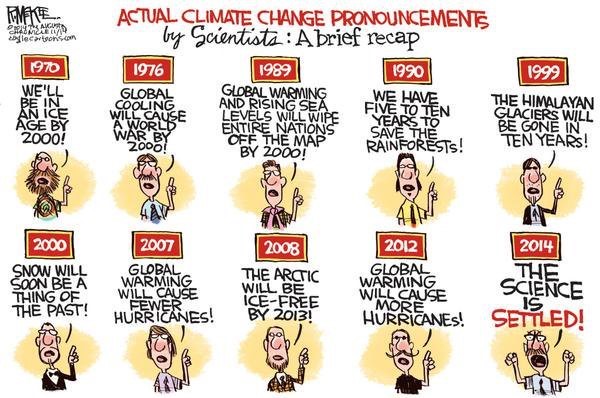26 July – 26 October 2019
A senior U.N. environmental official says entire nations could be wiped off the face of the Earth by rising sea levels if the global warming trend is not reversed by the year 2000. Coastal flooding and crop failures would create an exodus of ″eco-refugees,” threatening political chaos, said Noel Brown, director of the New York office of the U.N. Environment Program, or UNEP. He said governments have a 10-year window of opportunity to solve the greenhouse effect before it goes beyond human control.
As the warming melts polar icecaps, ocean levels will rise by up to three feet, enough to cover the Maldives and other flat island nations, Brown told The Associated Press in an interview on Wednesday. Coastal regions will be inundated; one-sixth of Bangladesh could be flooded, displacing a fourth of its 90 million people. A fifth of Egypt’s arable land in the Nile Delta would be flooded, cutting off its food supply, according to a joint UNEP and U.S. Environmental Protection Agency study. ″Ecological refugees will become a major concern, and what’s worse is you may find that people can move to drier ground, but the soils and the natural resources may not support life …”
UNEP estimates it would cost the United States at least $100 billion to protect its east coast alone. Shifting climate patterns would bring back 1930s Dust Bowl conditions to Canadian and U.S. wheatlands, while the Soviet Union could reap bumper crops if it adapts its agriculture in time, according to a study by UNEP and the International Institute for Applied Systems Analysis … The most conservative scientific estimate that the Earth’s temperature will rise 1 to 7 degrees in the next 30 years …
U.N. Predicts Disaster if Global Warming Not Checked
Associated Press (30 June 1989)
Today, the United Nations’ Intergovernmental Panel on Climate Change released a report on the forthcoming impacts of climate change. The consensus? It’s not looking good … unless the world makes some drastic and immediate changes to combat the damage already done, hundreds of millions of people may be irreversibly imperilled by drought, flooding, extreme heat and increased poverty in the decades to come.
… Evidence in the new report, in which a team of 91 scientists from 40 countries analyzed over 6,000 scientific studies, shows that the future is bleaker than once thought. A 2-degree-Celsius rise in temperatures would spell widespread disaster. Even if the world manages to [avoid such a fate], we’ll still be well on our way to flooded coastlines, intensified droughts and debilitated industries. A seemingly small 1.5-degree-Celsius bump in temperature would also alter weather worldwide, wreaking havoc on agriculture and natural ecosystems, and cost about $54 trillion in damages, according to the report. Because agriculture is the leading source of income in already poor countries, it’s likely that a crippling wave of poverty would ensue.
The World Was Just Issued 12-Year Ultimatum on Climate Change
Smithsonian.org (8 October 2018)
(See also 18 Spectacularly Wrong Predictions Made Around the Time of First Earth Day in 1970, Expect More this Year, AEI Carpe Diem, 21 April 2019)

A Defence of “Buy and Hold”
“Since its first publication in 1949,” wrote Benjamin Graham, “revisions of The Intelligent Investor have appeared at intervals of approximately five years. In updating the [1973] version we shall have to deal with quite a number of new developments since the 1965 edition was written.” These included:
… a fall of about 35% in the price level of leading common stocks, ending in May 1970. This was the highest percentage decline in some 30 years. (Countless issues of lower quality had a much larger shrinkage) … [Other developments included the] bankruptcy of our largest railroad, excessive short- and long-term debt of many formerly strongly entrenched companies, … a disturbing problem of solvency among Wall Street houses [and] the advent of the “performance” vogue in the management of investment funds, including some bank-operated trust funds, with disquieting results.
In response to these developments, and unlike most market participants, Graham stuck to his guns …
To read the full Newsletter click here.
![]()
